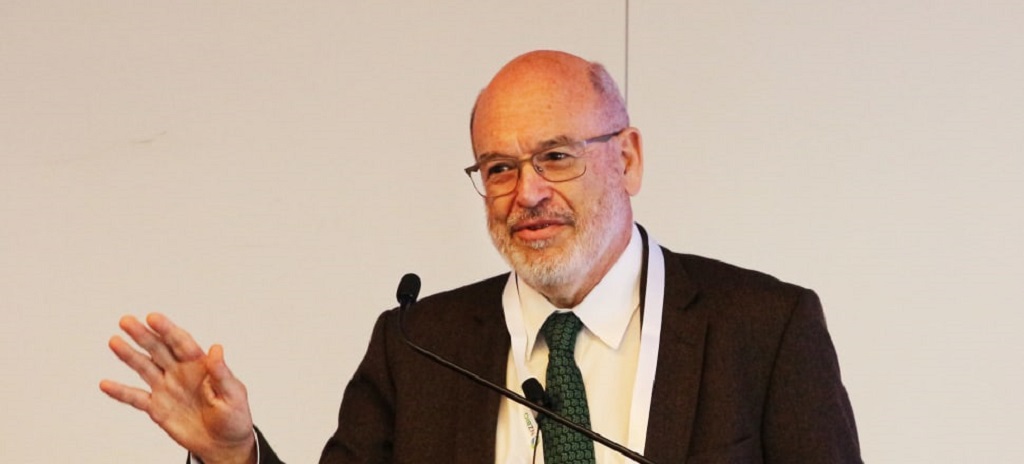Photo credit: Lynn Grieveson, featured on Newsroom.co.nz/
Our accelerating retreat from the idea of universal knowledge will do us harm, warns the University of Auckland’s Elizabeth Rata
‘Critical times as a species’. These are extreme words, made more powerful recently by their author, Sir Peter Gluckman. Such language is usually, and rightly, used for climate matters so given the strength of his words we need to ask what on earth is going on with our social world.
A surge in an ongoing spat with academic colleagues provides a perfect example of the subversion of knowledge and its replacement by the ideological isms that Gluckman spoke of. These are the ideologies that strengthen in-groups, that draw on the culture of folk knowledges to justify their claims to truth.
Modern society had found another way to understand what it is to be human. We have, in only a few hundred years, developed a new language of reason, one replacing in-group beliefs, one enabling us to communicate across historical and cultural differences, one which has made democracy possible.
Reasoned communication is the way across the divide of difference. It requires leaving the past and its animosities behind. But this is very difficult. The past gives us a sense of security and belonging. The institutions of modern society which unite us don’t have the same pulling power as the rallying cries of the isms. No wonder ethnic nationalisms, nativisms, and populisms with their ‘us not you’ and ‘our culture not yours’ are winning out. Unexamined belief is more satisfying than reason – and its easier.
Unexamined belief is more satisfying than reason – and its easier.
But back to the spat. The names aren’t important although I must confess to being one of the parties. It’s a spat that would be of no interest whatsoever if it didn’t neatly capture the anti-knowledge movement of our times. What’s more, it shows how the ‘isms’ are now in the university, the very institution that should give us trust in knowledge. So what’s going on? In May, the Waikato Journal of Education will publish a superb example of anti-knowledge. It’s not very kind to me but that’s OK. I happily accepted the invitation to respond to the article using it as an opportunity to write about what has happened to knowledge. Surely this is the conversation that Gluckman wants – using reason as the conduit for engagement across difference. Unfortunately the conversation can’t happen. Why not?
For reasoned conversation to occur there needs to be agreement about reason itself. The premise informing all modern knowledge is that there is a reality which exists independently of us, the ‘knowers’. What’s more, we can know this reality.
Our intellectual activity is how we seek the truth of the natural and social worlds. Belief isn’t enough. But what happens when the premise of objective knowledge is rejected, when we say that the world is not independent of the person who knows it, and that we can’t use reason to understand it? This is the case with the article in the Waikato journal. For the authors there is an unbreakable knower-knowledge tie. They insist that there is no independent knowledge for us to share universally, that how we know something is always tied to who we are, and who we are comes from our culture. But without the idea of universal knowledge which is beyond culture we are doomed to talk past each other.
The current era of enlightened reason may well be over unless we recognise what is happening.
The knowledge spat used to surface in university circles (think the late Professor Peter Munz’s critique of Linda Smith’s book about indigenous methodologies), though less so now that cultural ‘ways of knowing’ are accepted, even by such august bodies as the New Zealand Royal Society. The Society should know better of course but the belief that knowledge belongs to the knower is a premise of the new dominant ideologies; of ethnic nationalisms, nativisms and populism, and the Society has succumbed.
We no longer trust in reasoned knowledge. Gluckman says: ideas are not contested civilly, people are attacked, falsehoods multiply. He’s right. The current era of enlightened reason may well be over unless we recognise what is happening. Reasoned conversation is needed more than ever, but when knowledge is tied to the knowing group, universal reason no longer allows us to converse across groups. By abandoning reason we are endangering our future as a species. We are certainly abandoning what makes democracy possible. Given that the knowledge-knower belief now underpins New Zealand’s localised curriculum our retreat from the idea of universal knowledge will be accelerated. Our educational institutions are the first to fall. Others will follow.

